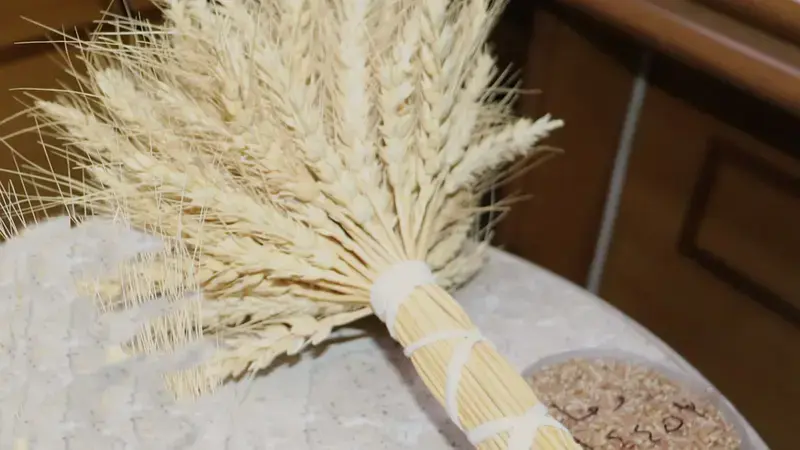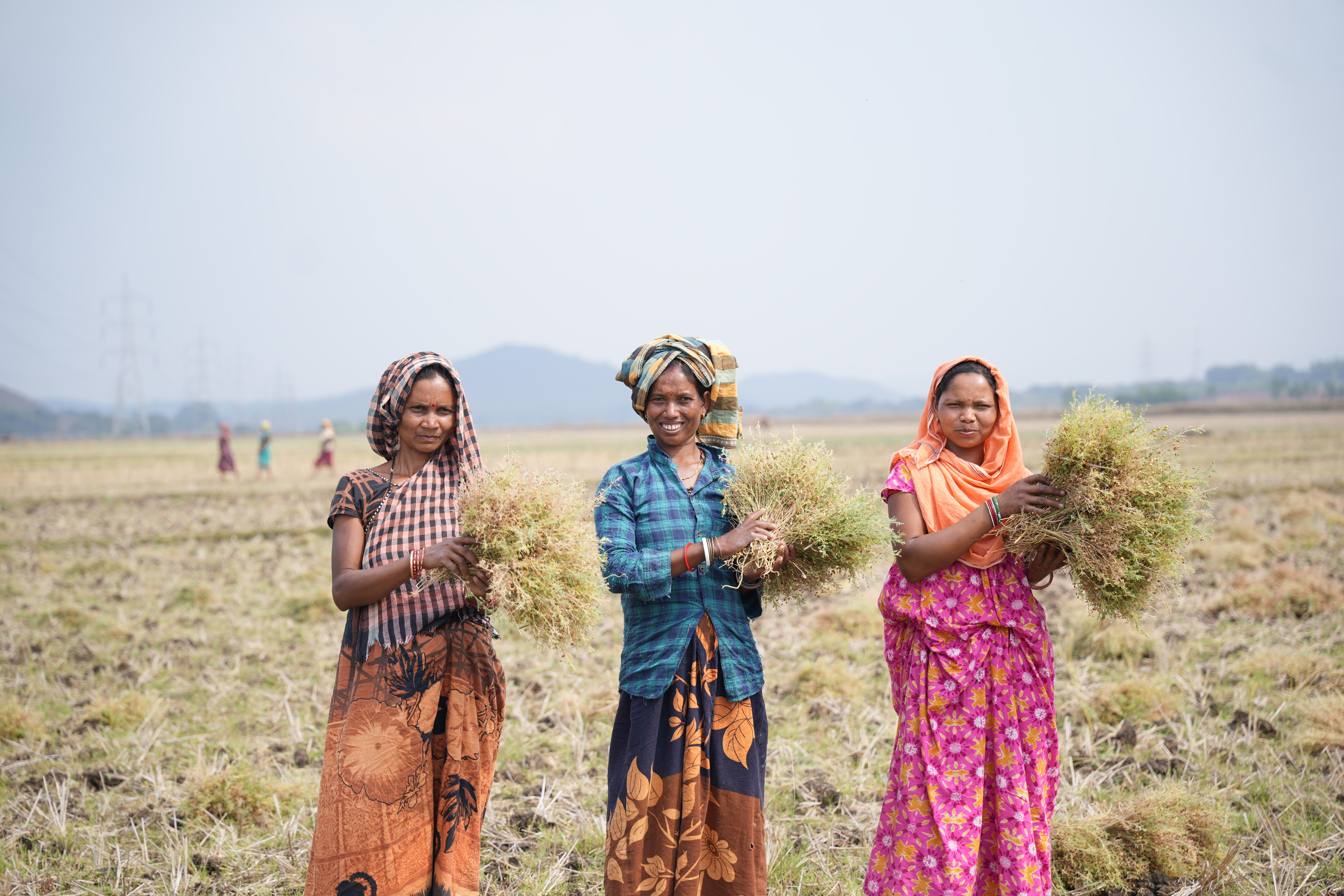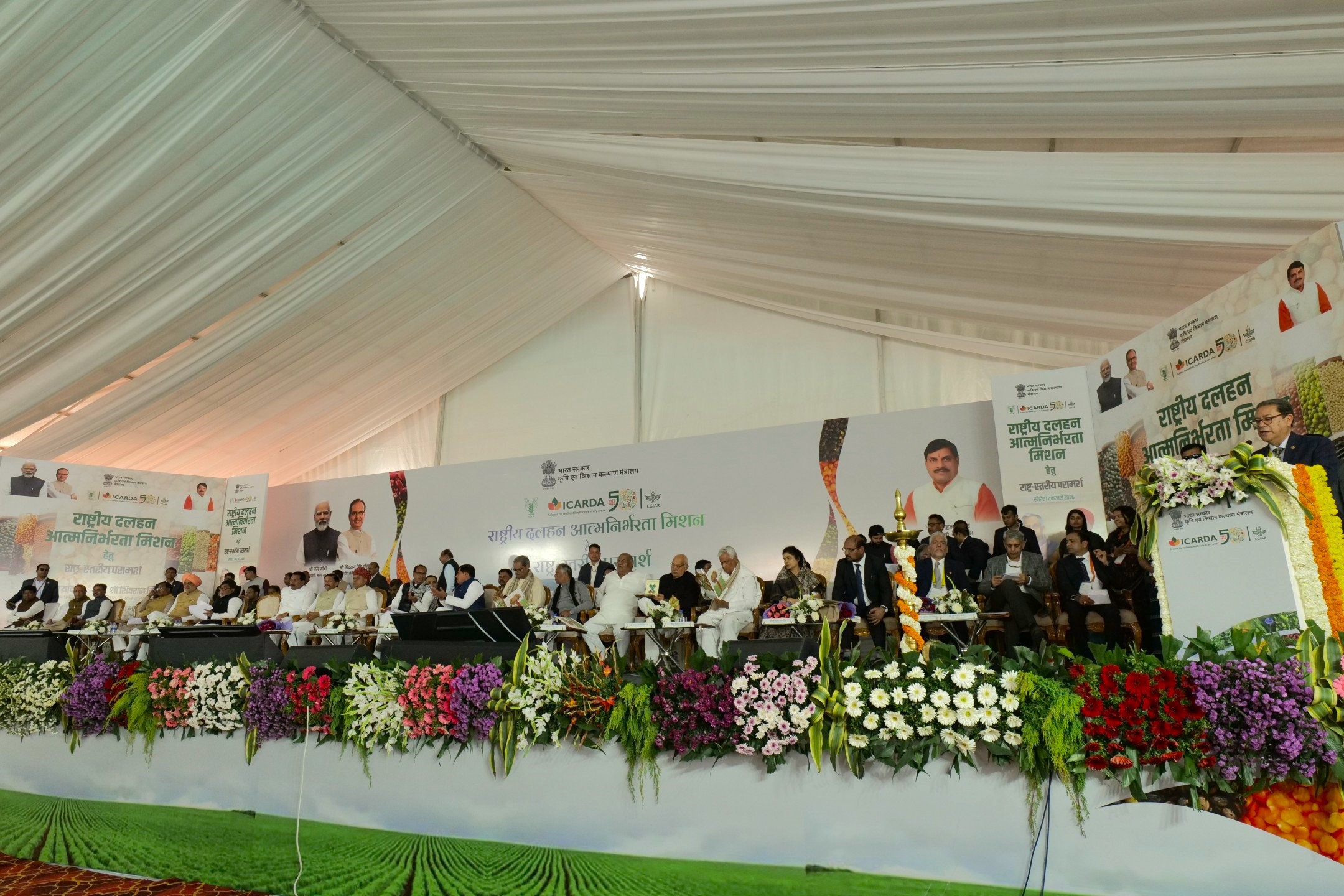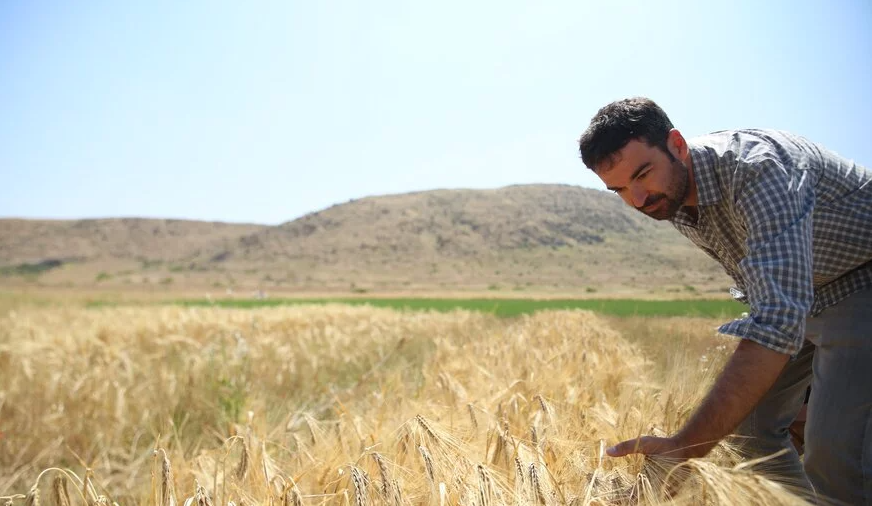A New Wheat Variety to Boost Rainfed Agriculture in Syria

In a significant development for Syria's agricultural sector, the National Committee for New Varieties, chaired by the Minister of Agriculture, has officially released a new bread wheat variety named Cham 12, developed and tested by ICARDA in collaboration with the General Commission for Scientific Agricultural Research (GCSAR).
The Cham 12 variety (Code name: Douma 64453 by GCSAR) originated from ICARDA germplasm and was shared with GCSAR. It is specifically designed for rain-fed agriculture in the country's Agroecological Zone 2, where average rainfall is limited to around 250-350 mm/season.
Cham 12 has undergone rigorous testing over several years, including yield trials conducted by the GCSAR in Hama and Daraa between 2011 and 2019 and on-farm trials in Aleppo. Research has consistently demonstrated Cham 12's superior performance over previously released commercial varieties. Compared to Douma 2 (released in 2004) and Douma 4 (released in 2007), Cham 12 yields outperformed by 9% to 28% in Daraa and Hama and by 7% to 21% in Aleppo, depending on the season and location.
Cham 12's outstanding performance, even during an extremely dry season in 2017-2018, followed by high rainfall in 2018-2019, underscores its stability and resilience to adverse environmental conditions
Cham 12 has also shown moderate resistance to yellow rust (a serious disease that threatens crops throughout the region) under natural infection conditions, tested across 11 locations. This balance of resilience and productivity makes Cham 12 a valuable addition to Syria's agricultural arsenal, particularly in the face of drought and increased pests and disease due to accelerating climate change, sometimes even breaking.
Cham 12 boasts an average productivity of 2,337 kg/ha, with a thousand-grain weight of 34 grams. It requires 113 days to reach the heading (when the seed head emerges from the sheath) and 154 days to reach full maturity. Additional characteristics include resistance to lodging, which is when plant stems are permanently knocked over by wind, rain, or hail, causing them to lean or lie flat on the ground.
Cham 12 is the latest of the Cham wheat varieties, a product of the long-standing ICARDA-Syria collaboration that began in 1981. The research utilized carefully optimized agronomic practices. For example, fertilization was applied based on soil analysis and actual needs, with nitrogen and phosphorus fertilizers used in precise quantities to ensure optimal growth and yield.
The release of Cham 12 is a crucial step forward for agriculture in Syria as well as global dryland regions. With its high yield, resilience, and adaptability to extreme weather conditions, Cham 12 is set to play a pivotal role in ensuring food security and improving the livelihoods of farmers in rainfed regions in the face of accelerating climate change.



